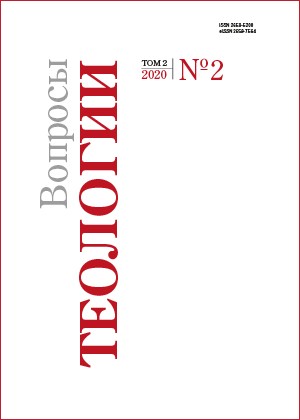Theodicy of Divine hiddenness: Posing the question
DOI:
https://doi.org/10.21638/spbu28.2020.207Abstract
Skeptical theologians widely discuss J. L. Schellenberg’s approach in which he demonstrates how epistemic skepticism of skeptical theology leads to Divine hiddenness. Although this experience is obviously close to that of godforsakeness (a strictly religious experience), nevertheless the experience of Divine hiddenness can lead to the denial of the theistic component of skeptic theism, and, accordingly, to the destruction of theism (Schellenberg himself adopts an atheistic position). In our article, we examine the causes of atheistic tendencies within skeptic theism and offer a proposal to preserve the theistic core of skeptic theism. We use the analysis of theodicy of the Book of Job (the concept of O. M. Nogovitsyn is the basis for the interpretation of the book) to indicate the possible cause of this atheistic tendency. A way to overcome the internal conflict of skeptic theism lies not in denying the agnostic component of the experience of the hidden God, but in maintaining the distinction between the name of God and God himself. The name of God reveals a particular truth about God, but it is essential to understand that God is different from his name. God appears to Job and presents himself as an absolute precedence, or a total other — different in relation to his own names.
Keywords:
skeptical theism, atheism, Divine hiddenness, theodicy, Book of Job
Downloads
References
References
Downloads
Published
Issue
Section
License
Articles of "Issues of Theology" are open access distributed under the terms of the License Agreement with Saint Petersburg State University, which permits to the authors unrestricted distribution and self-archiving free of charge.




